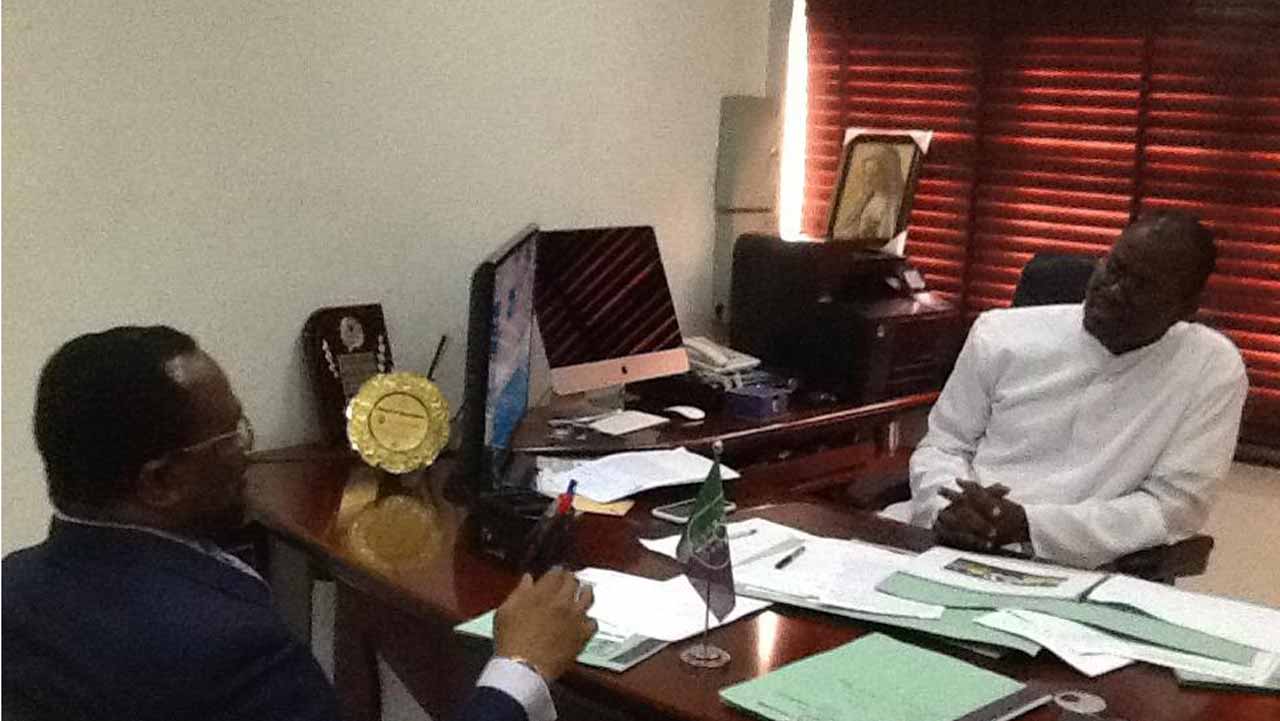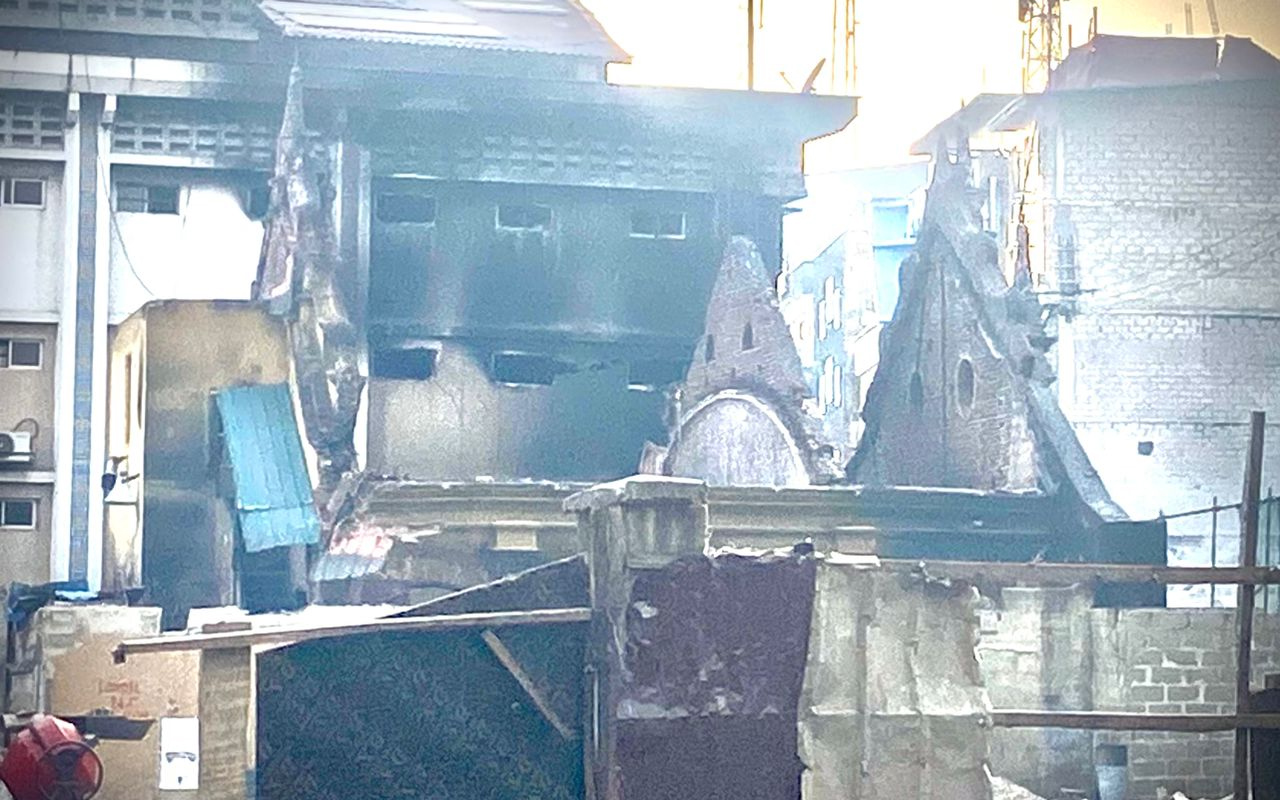
• Minister denies knowledge of bill in London
• Why Jalingo’s case may be resolved soon
As many Nigerians continue to condemn the Protection from Internet Falsehood and Manipulation Bill, which has passed the second reading and heading for the committee that will subsequently call for public hearing before it is passed into law, the Minister of Information and Culture, Alhaji Lai Mohammed, has said his ministry will, this month, convene a stakeholders’ meeting as part of efforts to design a framework for the sanitisation of the social media.
The minister stated this in Abuja last week when he received the Finnish Ambassador to Nigeria, Dr. Jyrki Pulkkinen, and the Ambassador of Innovation of the Foreign Affairs Ministry of Finland, Mr. Jarmo Sareva, who were on an advocacy visit to promote the ideals of the Freedom Online Coalition.
He said the government’s response to the irresponsible use of the social media to promote fake news and hate speech by some unscrupulous individuals is to work with stakeholders to devise a mechanism to sanitise the social media, without stifling press freedom or infringing on the rights of individuals.
“Our attempt to sanitise the social media is not at all an attempt to stifle the media and I want to make this very clear…. As we speak today, we will be meeting later in the month with leaders of the media, civil society, security and other stakeholders on how to sanitise our social media and make it safe for all.
“We, especially in this ministry, have watched with some trepidation the social media front and we have seen how some people try to abuse this platform to cause disaffection, especially by pushing fake news and hate speech,” Alhaji Mohammed said.
He said the government remains overwhelmingly committed to the protection of human rights, both offline and online, noting, however, that it would not shy away from ensuring that Nigeria has a responsibly free media.
The minister said that in spite of the plurality of values, tribes, cultures and religions, the government has striven to strike a balance between press/individual freedom and national security.
“For us in Nigeria, respect for human rights is a cardinal principle of not just our constitution but of our day-to-day governance. I am yet to see any country with the kind of population we have, the kind of multi values, multi cultures and multi religions we have, that has at the same time striven to balance national security with freedom of the press.
“I make bold to say that this administration in particular has no intention and does not tamper with the freedom of speech or freedom of individuals,” he said.
In his remarks, the Finnish Ambassador to Nigeria, Dr. Pulkkinen, acknowledged that the Minister has a broad understanding of the issues surrounding the misuse of the social media, particularly in relation to the credibility of information on the platform, and urged Nigeria to partner with global bodies like the Freedom Online Coalition to address some of the challenges posed by the social media.
On his part, the Ambassador of Innovation in the Foreign Affairs Ministry of Finland, Mr. Sarevo, said the Freedom Online Coalition is a group of 31 like-minded countries formed to promote human rights online and also ensure cyber security, privacy and protection of data against illegal usage and monetisation and trust, with a view to protecting all those uploading data on the Internet.
Meanwhile, the minister denied knowledge of the bill on a German television in London. The minister, who featured on Deutsche Welle’s Conflict Zone moderated by Tim Sebastine, dismissed the accusations of corruption, human rights abuses and attack of basic freedoms by the current government, saying they are just confusion and misrepresentation of the situation in Nigeria.
According to him, the Buhari led administration has been very sensitive to the issue of human rights, “although people have been punished for human rights violations in Nigeria,” he said.
Recall that the UN Special Rapporteur on extrajudicial, summary or arbitrary executions, Agnes Callamard, pointed out that the attempts of Nigeria to address its record of abuses have been entirely insufficient: “… the lack of effective investigations, the absence of meaningful prosecution, the militarisation of policing… are compounded by the lack of transparency.”
Though Mohammed said, “no policy targeted people’s human rights,” the record of government in addressing issues is questionable. In fact, the UN has said that Nigeria has failed to meet its obligation to report on the state of civil and political rights in the country, contrary to Mohammed’s claims of operating “within international regulations and laws.”
Reacting to the minister’s denial, the veteran journalist and author, Lanre Idowu, said that the Internet never forgets, adding, “Let’s give the minister the benefit of the doubt, but now that it has been brought to his knowledge, what is he doing about it?”
He urged the media to leave the government and its intrigues out and focus on how to ensure that the bill never succeeds.
According to him, “What are we doing as an industry? I have not seen the synergy of efforts. The organised media have some professional bodies such as the Guild of Editors, Nigeria Union of Journalists, BON and so on. This is the time for them to speak and stand by their position.
“Though we see some development agencies advocating on our behalf, we need to see BON, NUJ, NGE and others taking steps with some form of coordination. It is not everybody in the National Assembly that believes in what is happening. By now, we should know who is saying what at the national assembly through the various correspondents. Call it lobby, persuade or attack, the final objective is that we don’t want this bill to be passed.”
However, Chairman, DAAR Communications Plc, Mr. Raymond Dokpesi, recently said at a town hall meeting that the minister was right to have denied knowledge of the bill.
He said, “To have admitted knowledge of the bill would have exposed him to questions about the punitive measures contained within the bill, which in turn, from a neo-liberal European perspective would expose Nigeria’s government, and indeed, this country to international condemnation and ridicule.”
Also, Head of Department of Communication and Language Arts, University of Ibadan, Prof. Ayo Ojebode, told The Guardian that peddlers of fake news are a danger to democracy, “but this bill will be a disaster to the country. Without the bill, state emperors called governors have shown us what they can do with their critics – where is Agba Jalingo and others?
Recall that Jalingo, a journalist has been on detention for almost 150 days under the care of Nigeria Correctional Services in Calabar is facing trial for terrorism and treason. Last week Wednesday, he was supposed to appear before court but NCS did not present him in court.
This had a lot of Nigerians and international bodies worried. For instance, International Press Centre (IPC) issued a statement condemning the failure to present Jalingo in court for resumption of his trial.
Jalingo’s case was scheduled for appearance on Wednesday February 5, but his absence in court forced the adjournment till Friday, February 7, 2020.
In addition, the report stated that a lawyer in his defense team, James Ibor, said the failure to bring Jalingo to court was due to an administrative issue, as his production warrant was not signed.
IPC Executive Director, Mr. Lanre Arogundade, said the failure to produce Jalingo in court constituted an attempt to unfairly delay his trial, which is unacceptable.
According to him, the terrorism charges against the journalist were and still merely meant to punish him for raising accountability issues against the Cross River State Governor, Ben Ayade.
Arogundade, therefore, said that on the basis of the facts of the matter and the preponderance of public opinion, there is actually no reason to continue with the trial of the journalist. “We, therefore, call on the Attorney General of the Federation to immediately discontinue the case,” he said.
The Public Relations Officer, NCS, Augustine Njoku told The Guardian on phone that NCS could not produce Jalingo in court because the state government took over the case. Adding, “Jalingo is still in our custody but now that the attorney general has taking over the case, it should be faster.”
Meanwhile, the Socio-Economic Rights and Accountability Project (SERAP) has dragged the government of Nigeria and Cross River State government to ECOWAS Court of Justice in Abuja over the prolonged, arbitrary detention; unfair prosecution; persecution, and sham trial of Jalingo.
According to the suit: “This is not the first time the government of Nigeria and the Cross River state government of governor Ben Ayade have taken actions to intimidate, harass and suppress journalists through the instrumentality of trumped-up charges and use of overly broad and unjust laws, including section 24 of Nigeria’s Cybercrime Act, 2015, which provides for the offence of cyber-stalking.”






